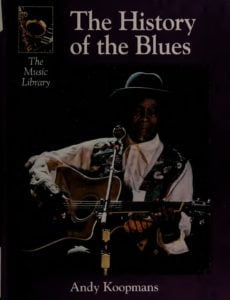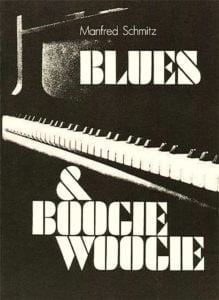Come join us now, and enjoy playing your beloved music and browse through great scores of every level and styles!
Can’t find the songbook you’re looking for? Please, email us at: sheetmusiclibrarypdf@gmail.com We’d like to help you!
A HISTORY OF THE BLUES ROBERT JOHNSON “CROSS ROAD BLUES” (ALSO KNOWN AS “CROSSROADS”) 1936
Please, subscribe to our Library.
If you are already a subscriber, please, check our NEW SCORES’ page every month for new sheet music. THANK YOU!
Robert Leroy Johnson (May 8, 1911 – August 16, 1938) was an American blues guitarist, singer, and songwriter. His landmark recordings in 1936 and 1937 display a combination of singing, guitar skills, and songwriting talent that has influenced later generations of musicians.
He is now recognized as a master of the blues, particularly the Delta blues style. Lots of Blues sheet music can be found in our Library.
As a traveling performer who played mostly on street corners, in juke joints, and at Saturday night dances, Johnson had little commercial success or public recognition in his lifetime. He participated in only two recording sessions, one in San Antonio in 1936, and one in Dallas in 1937, that produced 29 distinct songs (with 13 surviving alternate takes) recorded by famed Country Music Hall of Fame producer Don Law.
Best Sheet Music download from our Library.
These songs, recorded at low fidelity in improvised studios, were the totality of his recorded output. Most were released as 10-inch, 78 rpm singles from 1937–1938, with a few released after his death. Other than these recordings, very little was known of him during his life outside of the small musical circuit in the Mississippi Delta where he spent most of his life; much of his story has been reconstructed after his death by researchers. Johnson’s poorly documented life and death have given rise to much legend.
The one most closely associated with his life is that he sold his soul to the devil at a local crossroads to achieve musical success.
His music had a small, but influential, following during his life and in the two decades after his death. In late 1938 John Hammond sought him out for a concert at Carnegie Hall, From Spirituals to Swing, only to discover that Johnson had died. Brunswick Records, which owned the original recordings, was bought by Columbia Records, where Hammond was employed.
Musicologist Alan Lomax went to Mississippi in 1941 to record Johnson, also not knowing of his death. Law, who by then worked for Columbia Records, assembled a collection of Johnson’s recordings titled King of the Delta Blues Singers that was released by Columbia in 1961. It is widely credited with finally bringing Johnson’s work to a wider audience.
The album would become influential, especially on the nascent British blues movement; Eric Clapton has called Johnson “the most important blues singer that ever lived.” Musicians such as Bob Dylan, Keith Richards, and Robert Plant have cited both Johnson’s lyrics and musicianship as key influences on their own work. Many of Johnson’s songs have been covered over the years, becoming hits for other artists, and his guitar licks and lyrics have been borrowed by many later musicians.
“Cross Road Blues” (also known as “Crossroads“) is a blues song written and recorded by American blues artist Robert Johnson in 1936. Johnson performed it as a solo piece with his vocal and acoustic slide guitar in the Delta blues-style. The song has become part of the Robert Johnson mythology as referring to the place where he supposedly sold his soul to the Devil in exchange for his musical talents, although the lyrics do not contain any specific references.
Bluesman Elmore James revived the song with recordings in 1954 and 1960–1961. English guitarist Eric Clapton with Cream popularized the song as “Crossroads” in the late 1960s. Their blues rock interpretation inspired many cover versions and the Rock and Roll Hall of Fame included it as one of the “500 Songs That Shaped Rock and Roll”. Rolling Stone placed it at number three on the magazine’s list of the “Greatest Guitar Songs of All Time” in recognition of Clapton’s guitar work.
Renewed interest in Johnson’s work and life led to a burst of scholarship starting in the 1960s. Much of what is known about him was reconstructed by researchers such as Gayle Dean Wardlow and Bruce Conforth, especially in their 2019 award-winning biography of Johnson: Up Jumped the Devil: The Real Life of Robert Johnson (Chicago Review Press).
Two films, the 1991 documentary The Search for Robert Johnson by John Hammond, Jr., and a 1997 documentary, Can’t You Hear the Wind Howl, the Life and Music of Robert Johnson, which included reconstructed scenes with Keb’ Mo’ as Johnson, were attempts to document his life, and demonstrated the difficulties arising from the scant historical record and conflicting oral accounts.
“Cross Road Blues” reflects Johnson’s Delta blues roots and may have been in his repertoire since 1932. It is the first recording to show his mastery of his mentor Son House’s style, particularly in his slide guitar work. The song’s structure differs from a well-defined twelve-bar blues. The verses are not consistent and range from fourteen to fifteen bars in length. Additionally, the harmonic progression is often implied rather than stated (full IV and V chords are not used).

In 1986, Robert Johnson’s “Cross Road Blues” was inducted into the Blues Foundation Hall of Fame. Writing for the foundation, Jim O’Neal noted that “regardless of mythology and rock ‘n’ roll renditions, Johnson’s record was indeed a powerful one, a song that would stand the test of time on its own”. In 1998, it received a Grammy Hall of Fame Award to acknowledge its quality and place in recording history. In 1995, the Rock and Roll Hall of Fame listed Cream’s “Crossroads” as one of the “500 Songs That Shaped Rock and Roll”. Rolling Stone magazine placed it at number three on its “Greatest Guitar Songs of All Time”

Download the best Blues and Jazz sheet music here.
Browse in the Library:
Or browse in the categories menus & download the Library Catalog PDF:

Leave a Reply
You must be logged in to post a comment.